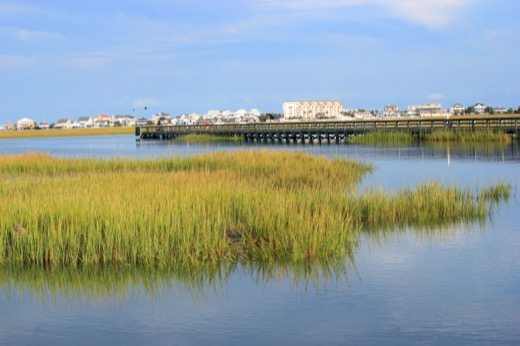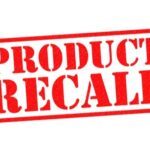Cruise Ships Polluting the Oceans
Recently, Princess Cruise Lines Ltd. was fined a $40 million penalty for deliberate pollution. The company entered into a plea agreement with the Department of Justice, pleading guilty to a felony charge for illegally dumping oil contaminated waste.
The dumping was discovered when a whistleblower reported that the Caribbean Princess had dumped oil contaminated waste off the coast of England in 2013. This was done to save money. When the incident came to light, the chief engineer attempted to cover it up. This particular vessel has a history of environmental violations dating to at least 2005.
This violation is unusual because of its deliberateness. The General Accounting Office produced a study in 2000 finding that between 1993 and 1998, only 15 percent of illegal dumping in U.S. waters was intentional. Further, 72 percent was accidental and 13 percent could not be determined. Even cruise ships who follow the laws generate massive waste. Even cruise ships that follow the rules can do damage.
According to Friends of the Earth, cruise ships generate approximately 15 gallons of hazardous chemicals each day. Every week, the largest cruise ships generate 210,000 gallons of sewage. They also generate nearly five times as much graywater from sinks, laundry and showers. It is estimated that 100 million gallons of petroleum based products from cruise ships leaks into the oceans each year.
Cruise ships are only required to treat graywater and sewage with Marine Sanitation Devices. This technology is ineffective, leaving heavy metals, bacteria and nutrients that impact the marine environments.
Advanced technologies that better remove pollutants from wastewater before it is dumped do exist and would be helpful. It would be best if cruise ships did not dump treated sewage near marine protected areas and sensitive coastlines. However, cruise lines do not always clearly reveal their environmental policies.
The Friends of the Earth grades cruise ship lines based on transparency, sewage treatment, water quality compliance and air pollution reduction. In their 2016 report, they evaluated 17 cruise lines and only one received a grade above a C. Disney Cruise Lines received an A-, eight cruise lines received Ds, and four received Fs. Friends of the Earth judged cruise lines based on four criteria. These include Water Quality Compliance, Transparency, Air Pollution Reduction, and Sewage Treatment.
Water Quality Compliance grades were determined for cruise ships operating in Alaska by examining notices of violation for each cruise line issued by the Alaska Department of Environmental Conservation from 2010 to 2014. If a ship traveled to Alaska but discharged its waste outside of Alaskan waters to avoid Alaska’s strong water quality standards, it was given a grade of “N/A.”
Transparency grades were based solely on whether a cruise line responded to Friend of the Earth’s 2015 information request about their environmental practices.
Air Pollution Reduction grades were based on whether ships were capable of plugging into shore-side power or had installed scrubbers. Cruise ships that docked in ports with shore power capacity and scrubber technology received a grade of A. Cruise ships that only docked at ports with shore-side power or scrubber technology received a grade of C. Cruise ships were also credited if they only used low sulfur fuels at levels lower than required by law.
Sewage Treatment grades were determined by the proportion of a cruise line’s cruise ships that have installed advanced sewage treatment systems across the cruise line’s fleet.
A cruise line’s Final Grade was calculated by averaging each of the four criteria.
The environmental concerns grow as the cruise ship industry expands. Cruise ship demand has increased nearly 70 percent in the past 10 years according to the Cruise Lines International Association. More than 22 million people took a cruise in 2014 and about half of them were in the United States. It is estimated that every passenger on a cruise ship has a carbon footprint that is three times what it would be if they were on land.
Not only are there an increasing number of cruise ships, they are also increasing in size. The Harmony of the Seas, owned by Royal Caribbean, is the largest cruise ship in the world. It carries 6,780 passengers and 2,100 crew members. It is a 16-deck-tall floating city. The ship has two four-story 16-cylinder diesel engines. At full power, each engine burns 1,377 gallons of fuel an hour or approximately 66,000 gallons a day. The diesel fuel burned is some of the most polluting in the world.
The cruise ship must use abatement technologies or burn low sulfur fuel when in port and close to coasts in the United States and Europe. Some still complain that the cruise ships contribute to air pollution in cities south as Southampton, England, where the Harmony docks. Southampton residents also complain that the road traffic generated by the cruise ships generate air pollution.
Royal Caribbean says that the Harmony uses the most modern and efficient pollution control systems and meets all legal requirements. An organization for the cruise line industry adds that cruise lines have invested significantly to develop new technologies to reduce air emissions.
However, marine pollution analysts in Brussels and Germany argue that such a large ship would emit more sulfur than several million cars and more NO2 gas than all traffic through a medium-sized town.
According to Bill Hemmings, an expert with the Transport and Environment group, the large cruise ships burn as much fuel as whole towns. Even when they burn low sulfur fuel it is 100 times worse than road diesel.
Contact the Maritime Attorneys at Madalon Law to Discuss Your Cruise Related Injury or Illness
Given the nature of cruises, it is not uncommon for passengers to become ill during their voyage. If the illness can be attributed to negligence or carelessness of the ship’s employees and crew, you may be entitled to compensation. Contact the experienced Florida maritime attorneys at Madalon Law to discuss your case. Our attorneys are well versed in both federal and state law. There is no fee unless we win your case.








